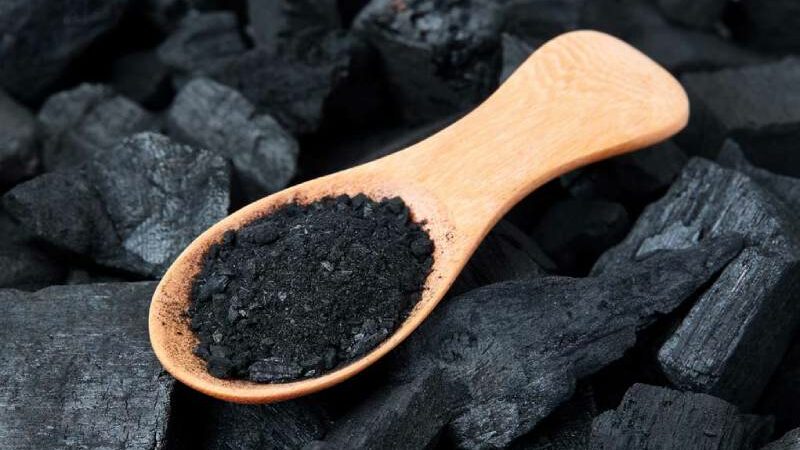Many products, both food and non-edible, such toothpaste and ice cream, contain activated charcoal. Toxic traditional charcoal briquettes are typically used for grilling and cooking. Therefore, avoid using traditional charcoal for these uses.
The benefits of utilising activated charcoal are as follows:
1. Decrease the smell of fish
In patients with trimethylaminuria (TMAU), a genetic condition where trimethylamine (TMA) builds up in the body and generates body smell, activated charcoal may help lessen the symptoms of fish odour syndrome.
TMA is typically converted by the body into an odourless material before being eliminated through urine, but those with TMAU lack the enzyme needed to do this.
According to studies, the porous surface of activated charcoal may bind to tiny, pungent molecules like TMA and promote their elimination, preventing the odour from being stored in the body.
2. Timely anti-poison therapy
It has been used as an instant anti-poison treatment since the early 1800s. It can treat prescription drug overdoses and overdoses from over-the-counter medicines, as well as decrease the effects of many different drugs.
According to research, ingesting 50–100 grams of activated charcoal within five minutes of taking a medication can reduce an adult’s ability to absorb it by as much as 74%. Activated charcoal works best if taken within the first hour after an overdose or poisoning.
3. Promotes kidney function
By reducing the amount of waste products that the kidneys must filter, activated charcoal may enhance kidney function; this is especially beneficial for people with chronic renal disease. The ability of healthy kidneys to filter blood is unaffected by this medical condition, but they are less able to remove urea and other contaminants.
Activated charcoal may aid in improving kidney function and reducing blood levels of urea and other waste products in people with chronic renal disease.
4. Reduce cholesterol levels
In a research, those who consumed 24 grams of activated charcoal daily for four weeks had their total and LDL cholesterol drop by 25% apiece and their HDL cholesterol increase by 8%. By adhering to cholesterol and bile acids that contain cholesterol in the stomach and preventing their absorption, it has been discovered that activated charcoal lowers cholesterol levels.
5. Reduces internal gas
It is also thought that activated charcoal powder alters intestinal gas. According to a 2012 study, eating 448 mg of activated charcoal three times a day for two days before and after intestinal ultrasound exams helped make several organs more visible that would have otherwise been hidden by intestinal gas. Furthermore, 34% of those who received activated charcoal to lessen their gas also reported improved signs and symptoms.
6. Skincare
Activated charcoal attracts microparticles such as toxins, pathogens, chemicals, and other things to the skin’s surface, making it simpler to remove them. For softer skin, so many individuals use charcoal as face masks, and some even take charcoal baths.
7. Whitens teeth
Activated charcoal, which is found in many teeth-whitening solutions and is said to offer antiviral, antibacterial, antifungal, and detoxifying qualities.
While it removes stains from teeth well, crowns and veneers may not be suitable with activated charcoal. It need to be performed a couple times per week and shouldn’t be used in place of your usual oral hygiene routine.
- Top 5 Health Insurance Stocks to Add to Your Portfolio - July 26, 2024
- 7 Reasons Edamame is Great for Your Health - July 26, 2024
- 2024 Paris Olympics: How Many US Athletes Are Competing? - July 26, 2024





